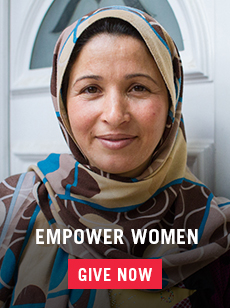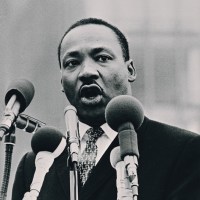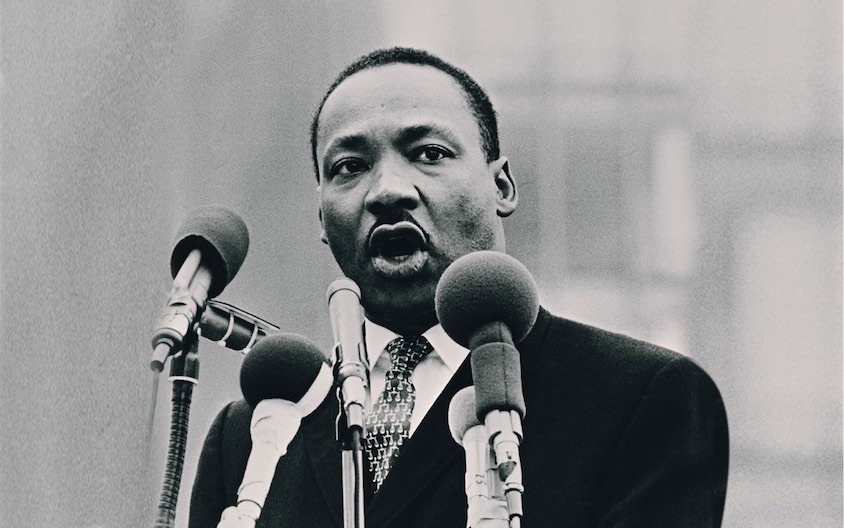In his book David and Goliath, Malcolm Gladwell describes a night in Birmingham when Dr. Martin Luther King, Jr. was attacked while giving a speech. “A two-hundred-pound white man charged the stage and began pummeling King with his fists,” Gladwell writes.
He goes on to quote from Diane McWhorter’s book Carry Me Home, describing what happened next as King’s aides rushed to his defense:
They were astounded to watch King become his assailant’s protector. He held him solicitously and, as the audience began singing Movement songs, told him that their cause was just, that violence was self-demeaning, that “we’re going to win.” Then King introduced him to the crowd, as though he were a surprise guest. Roy James, a twenty-four-year-old native New Yorker who lived in an American Nazi Party dormitory in Arlington, Virginia, began to weep in King’s embrace.
That’s what preemptive love does. It moves toward the person who has their fists up, but with arms ready to embrace instead of attack. Make no mistake, it is risky. It’s not the easiest way to live.
You may get pummeled, center stage.

But preemptive love has the power to change the person in front of you, the same way it changed the man King embraced that night in Birmingham. Preemptive love leans in, because it knows that neither the victim nor the society that nurtures prejudice can flourish, not when we rob each other of equality. When we treat others as less worthy of our compassion, less worthy of protection under the justice system, less worthy of us listening to their stories… we all become less.
Today, we celebrate America’s greatest peacemaker. He called us to honor each other in ways that our government, our society, and our families said we didn’t need to. “Separate but equal” was the American way, and it wasn’t about to go without a fight.
King leaned in, and he did fight. We should not mistake his nonviolence for weakness or passivity. He fought hard against discrimination, poverty, and war. He gave his life because he believed in the power of love to defy hate. He fought with a willingness to reach across enemy lines.
America didn’t believe in him. It believed in “separate but equal.” But King believed in an America that he hadn’t seen yet; that nobody had experienced yet. He believed in an America where black children go to school with white children, where they play together at recess.
King believed in a world that had more love, more justice, a world where together we step across enemy lines and embrace conflict rather than run from it. Where our love has the ability to transcend guilt, shame, and indifference.
Today, let’s wrap our arms around those we fear. Let’s invite others to do the same. Let’s be brave, even if we get pummeled. Let’s choose hope, bravery and peace today, in honor of a man who showed us what is possible when we do.


